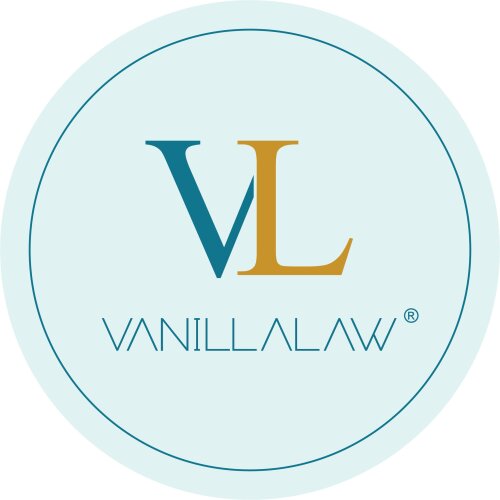Best Tax Lawyers in Singapore
Share your needs with us, get contacted by law firms.
Free. Takes 2 min.
Or refine your search by selecting a city:
List of the best lawyers in Singapore
About Tax Law in Singapore
Singapore's tax system is regarded as one of the world's most efficient and transparent frameworks. The country imposes a variety of taxes including income tax, Goods and Services Tax (GST), property tax, and stamp duties, among others. The Inland Revenue Authority of Singapore (IRAS) is the main tax collection agency responsible for administering, assessing, and enforcing tax laws in the country. Taxation in Singapore is structured to support economic growth by ensuring that taxes are fairly imposed and collected.
Why You May Need a Lawyer
There are multiple situations where seeking legal advice in tax matters may be necessary. These include setting up a business and understanding corporate tax obligations, dealing with tax audits, structuring mergers and acquisitions, handling cross-border tax issues, and addressing any tax-related disputes or investigations. Tax lawyers can provide expert guidance to ensure compliance and mitigate risks associated with tax liabilities, penalties, or legal ramifications.
Local Laws Overview
Understanding the key aspects of local tax laws in Singapore is crucial for compliance and effective tax planning. Some important areas include:
- Income Tax: Governed by the Income Tax Act, it applies to both individuals and companies with progressive rates for personal income tax and a flat rate for corporate tax.
- GST: This is a broad-based consumption tax levied on the import of goods and nearly all supplies of goods and services. The rate is relatively low compared to global standards.
- Property Tax: Imposed on owners of real estate, based on the property's annual value which is determined by rental value.
- Stamp Duty: Applied to certain transactions including property transactions and share transfers.
Frequently Asked Questions
What is the corporate income tax rate in Singapore?
The corporate income tax rate in Singapore is a flat rate of 17%. There are various tax incentives and exemptions available for qualifying entities.
How does GST work in Singapore?
GST in Singapore is currently set at 7%. It applies to the sale of goods and services in Singapore as well as the importation of goods into the country.
Who needs to file an income tax return?
Individuals earning more than $22,000 per year are required to file an income tax return. Companies must also file annual tax returns regardless of profit or loss.
What are the penalties for late tax payment?
The IRAS imposes a late payment penalty initially set at 5% of the unpaid tax amount, with further penalties if the debt remains unsettled.
Can non-residents be taxed in Singapore?
Yes, non-resident individuals and companies may be subject to taxes on income derived from Singapore sources under certain conditions.
How are dividends taxed in Singapore?
Singapore does not tax dividends. This applies to both resident and non-resident individuals.
What is the holding period for capital gains tax waiver on property?
There is no capital gains tax in Singapore. However, a Seller’s Stamp Duty (SSD) applies if properties are sold within three years of purchase.
Are there any double taxation treaties Singapore is part of?
Yes, Singapore has numerous Double Taxation Avoidance Agreements (DTAs) with various countries to facilitate businesses and prevent double taxation of income.
What is the filing deadline for individual income tax?
The deadline for filing individual income tax returns is usually April 15th for electronic submissions and April 18th for paper filings.
How can I appeal a tax assessment in Singapore?
You can file an objection or appeal to the Comptroller of Income Tax within 30 days from the date on the Notice of Assessment.
Additional Resources
Several resources and organizations can offer further help:
- Inland Revenue Authority of Singapore (IRAS): The main body for tax matters and a valuable source of information and guidance.
- Singapore Institute of Accredited Tax Professionals (SIATP): Offers resources and professional services related to tax.
- The Association of Chartered Certified Accountants (ACCA) Singapore: Provides support and advice on various financial and taxation matters.
Next Steps
If you believe you need legal assistance regarding tax issues, consider taking the following steps:
- Identify the specific area or issue you require assistance with, whether it's compliance, an audit, or litigation.
- Consult with a tax lawyer or accounting professional who specializes in Singaporean tax law to provide guidance and representation.
- Prepare all relevant documentation and information to facilitate a thorough review and analysis by your legal advisor.
Lawzana helps you find the best lawyers and law firms in Singapore through a curated and pre-screened list of qualified legal professionals. Our platform offers rankings and detailed profiles of attorneys and law firms, allowing you to compare based on practice areas, including Tax, experience, and client feedback.
Each profile includes a description of the firm's areas of practice, client reviews, team members and partners, year of establishment, spoken languages, office locations, contact information, social media presence, and any published articles or resources. Most firms on our platform speak English and are experienced in both local and international legal matters.
Get a quote from top-rated law firms in Singapore — quickly, securely, and without unnecessary hassle.
Disclaimer:
The information provided on this page is for general informational purposes only and does not constitute legal advice. While we strive to ensure the accuracy and relevance of the content, legal information may change over time, and interpretations of the law can vary. You should always consult with a qualified legal professional for advice specific to your situation.
We disclaim all liability for actions taken or not taken based on the content of this page. If you believe any information is incorrect or outdated, please contact us, and we will review and update it where appropriate.
Browse tax law firms by city in Singapore
Refine your search by selecting a city.













